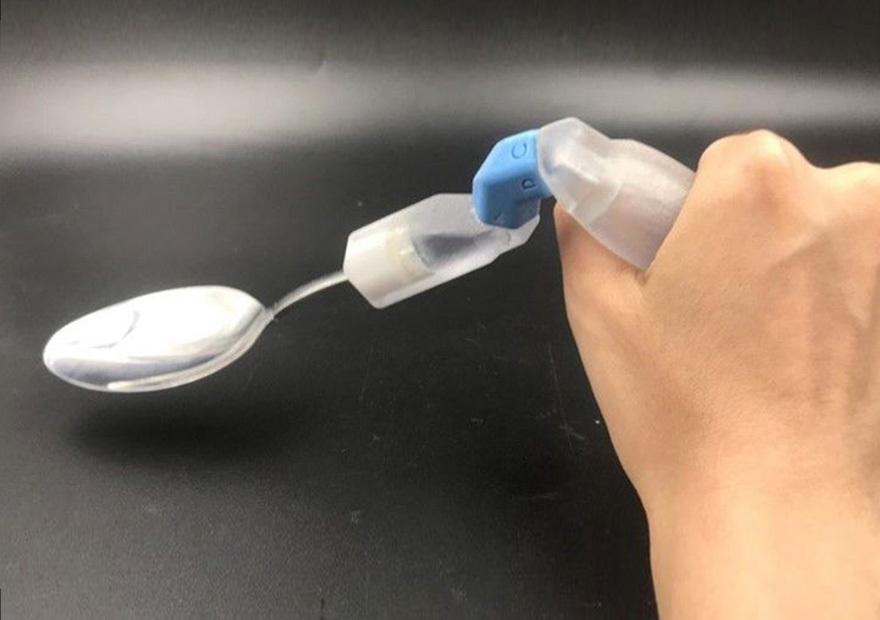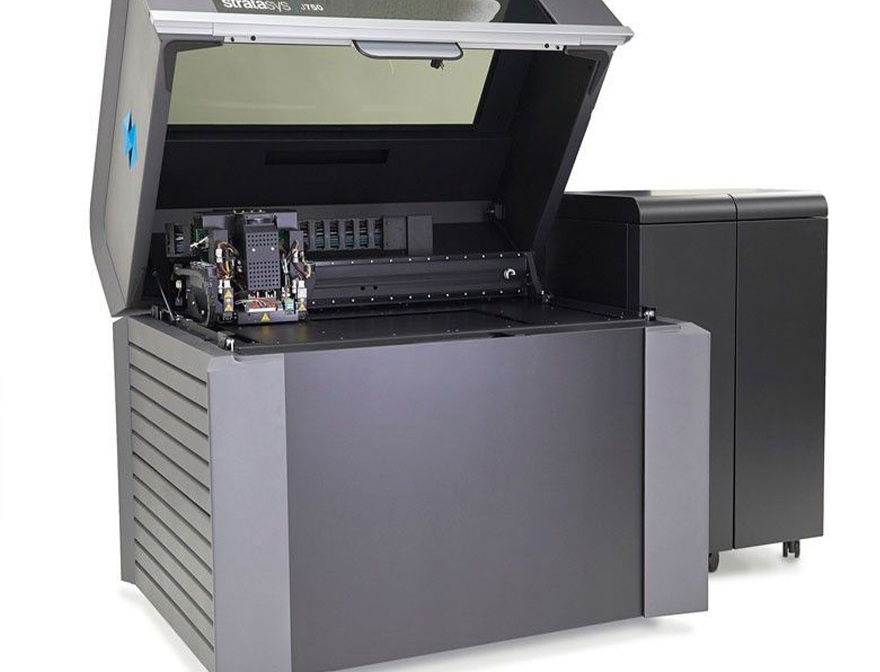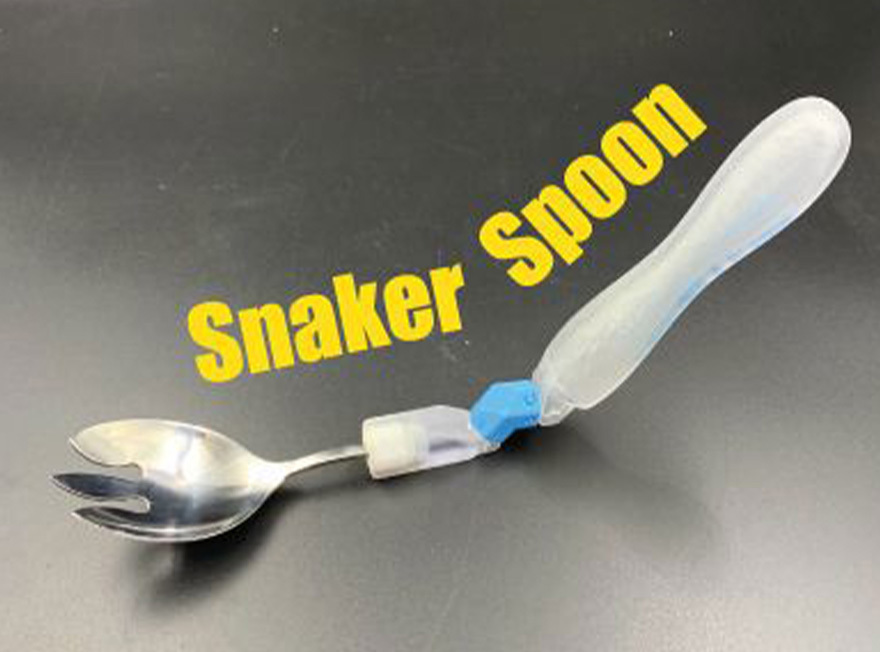For many of us, the ability to perform what might be considered mundane physical movements are taken for granted: walking to the bus stop, picking up our cellphone, reaching for a cup of coffee. However, for those with disabilities, these motions are not easy. Even seemingly trivial tasks like feeding themselves with spoons, an activity that requires a simple coordination of joints and muscles in the arm, elbow, wrist and fingers, can pose enormous difficulties.
At the 13th International Convention on Rehabilitation Engineering and Assistive Technology (i-CREATe 2019), a team from the Hong Kong Polytechnic University (PolyU) won the Gold Award with an invention called the “Snaker Spoon.”
The Snaker Spoon is a special spoon designed for people with upper limb disabilities, especially those who suffer from cerebral palsy and rheumatoid arthritis and often need help with eating. Developed by Kristy Fung and her team from the program of Occupational Therapy at PolyU, Snaker Spoon aims at facilitating independent feeding. Its handle is twistable, like a snake, and consists of three parts: the spoon, the interface for angle turning, and the handle. A spring connects these parts to allow angle adjustment, and the magnets between them ensures stability during feeding. Both the spoon and the handle allow six directions of twisting, so a total of 36 combinations is possible. As a result, Snaker Spoon allows the users to twist both the spoon and the handle to achieve the most suitable feeding angles and eat without limitations.
The Snaker Spoon developed from a class project. But although the concept seemed interesting enough, it took some effort to transform it into a tangible product. Given that it is designed to solve a user-experience problem, a lot of iterations were needed to finalize the design, such as the size, shape and structure. The traditional method to create such a product involved CNC machining and molding. But creating a mold for each design would be very time consuming, to say nothing of the costs, and Kristy and her team could not wait that long. Furthermore, finding a material that was flexible as well as sturdy also proved to be a headache. Fortunately, the University Research Facility in 3D Printing (U3DP) at PolyU has a large number of Stratasys 3D printers, such as the F900™, the Fortus 450mc™, J750™, and the Objet30 Pro™, that were able to support Kristy Fung’s endeavors. Working with the engineering experts there, Kristy and her team were able to use the printers to develop the Snaker Spoon.
Kristy chose to print the handle and the spoon with the Stratasys J750 and Digital ABS™. As the first full-color, multi-material 3D printer in the world, the J750 delivers unrivaled aesthetic performance, including true, full-color capability with texture mapping and color gradients. Its wide range of material properties allows the creation of prototypes that look, feel, and operate like finished products, without the need for painting or assembly. Digital ABS is designed to simulate durable production plastics and can deliver high impact strength with high-temperature resistance and superior finish. As a result, Kristy’s needs for accuracy and strength were fully satisfied.
For the spring that connects the spoon and the handle, Kristy used the Stratasys F900 printer and ASA material. The F900’s large tray size (914.4 x 609.6 x 914.4 mm) is designed to handle the most demanding manufacturing needs. This allowed Kristy to print several different prototypes at the same time and test them together, which greatly shortened the development phase. The F900 has unmatched accuracy, repeatability, and predictability, and the control software leverages the system’s hardware to deliver superior throughput and reliability. ASA is somewhat like ABS, but has better UV resistance, mechanical properties, and aesthetics. One of the advantages of Stratasys FDM® and PolyJet™ technologies is the high level of accuracy, which makes the part assembly very easy. Furthermore, the soluble support material easily enables complex shapes and minimizes post-processing. Time and costs were also key reasons that pushed Kristy to choose 3D printing. Using CNC, new molds would need to be created for each part, and the whole process would take 30-45 days. In contrast, 3D printing a Snaker Spoon takes between 25 and 30 hours, including postprocessing. As for expenses, Kristy estimated that 3D printing helped cut the costs by as much as 40%


